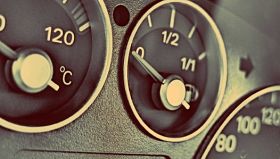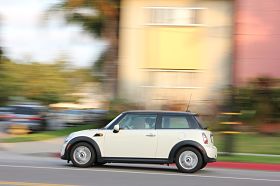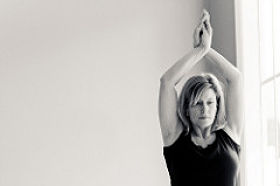You’re a sole trader. You’ve made it this far with your small business accounts preparation and you can feel the end in sight. But, come to working out what you can and cannot claim as an expense (for tax purposes) and that sense of achievement starts to diminish. You’re baffled by the rules and you’re not quite sure whether what you’re doing is legally correct. Sound familiar?
Tax law is confusing and there are times when it just doesn’t seem logical. Expenses that are allowed as a deduction in financial accounts may not be allowed for tax purposes. Expenses that are allowed as a deduction by a director of a Limited company may not necessarily be allowed as a deduction by a sole trader.
To help unravel some of the confusion for sole traders, I have put together this blog focusing on the five main misconceptions surrounding claiming expenses.
1 – Claiming both mileage rate and fuel costs
There are two methods available to sole traders to include the costs of your business motor expenses – the full cost method and the approved mileage method.
A very common mistake made by sole traders is making a claim for business mileage in addition to claiming for fuel costs, road tax and other motor related expenses. Unfortunately this is not allowed – you must choose one method or the other.
If you are claiming the approved mileage rate (45p for the first 10,000 business miles) you are not allowed to claim any fuel costs, or other motor expenses as these costs are built into the 45p rate. You are effectively double counting if you deduct both.
2 – Claiming expenses for your journey between Home and Work
The rule is that you are not allowed to claim for business journeys that come under the definition of “ordinary commuting”, the journey between your home and place of work.
You will need to establish your “base of operations” – the place where you carry out your work. If your permanent work-place is outside the home then the expense of the daily journey between home and work-place is not allowable.
If you work at home then your base of work is home so any business related journey from home is generally allowed provided it is “wholly and exclusively for business”.
Having said this you do need to be aware that business journeys have recently come under renewed scrutiny by HMRC and recent case law has pointed to “frequency of travel to a particular destination” as being an important factor in determining whether the journey is allowable for tax purposes. Even if your work base is home, journeys of a regular nature may not be allowable. Case law is still being developed in this area so if you are in any doubt as to whether your journeys are allowable you can seek further guidance by contacting me here.
3 – Claiming for “everyday” clothing used in your business
HMRC maintain that there is an element of private benefit derived from clothing – keeping you warm and “decently clad”. Clothing that is or could be part of your “everyday wardrobe” is not allowable for tax relief.
Take the example of the yoga teacher who wants to claim the cost of the yoga kit used in teaching classes or the marketing consultant who purchases a business suit with the intention of only wearing the suit for meeting clients. In both circumstances the cost of clothing would not be allowable as such items could conceivable be part of your “everyday wardrobe”.
There are some specific examples of where clothing costs are allowable.
- Entertainers who purchase costumes for performances
- Protective clothing, for example if you are a self-employed tree surgeon the cost of your helmet and boots are allowable
- Uniform that identifies clearly with what you do, for example a dental hygienist or nurses uniform
The claiming of clothing with a business logo tends to be a grey area and if in doubt, chat through with an accountant. I’m here.
4 – Claiming for food and drink
 Let’s start with an example: you purchase coffee and lunch at a local venue for a business meeting with a prospective supplier or client and spend the entire duration of the meal talking business. It would seem both logical and reasonable to consider the whole expense as being a genuine business related expense and hence allowable as a deduction against your income.
Let’s start with an example: you purchase coffee and lunch at a local venue for a business meeting with a prospective supplier or client and spend the entire duration of the meal talking business. It would seem both logical and reasonable to consider the whole expense as being a genuine business related expense and hence allowable as a deduction against your income.
Sadly HMRC don’t see it that way and unfortunately the costs of food and drink in this example wouldn’t be allowable as a tax deduction. HMRC maintain that “everyone must eat to live” and that such costs are not incurred for the purposes of trading.
Fortunately there are some exceptions to the general rule.
- If you are staying away from your usual base overnight on business you will be allowed to claim reasonable subsistence costs
- If you make a journey that is outside your normal pattern of business activity you will be allowed to claim reasonable food and drink costs. For example: if you live in Winchester but take the train to London to attend a training course you will be allowed to claim for your lunch en-route.
For more details on what you can or cannot claim for food and drink, take a look at my post “Can I claim for my food and drink expenses?”
5 – Claiming for tax payments and other personal expenses
You’ll be familiar with the rule that you are only allowed to deduct certain business related expenses from your income for tax purposes, but many sole traders confuse the following outgoings as being genuine business expenses.
The following outgoings are not allowed as deductions against your business income:
- National insurance contributions
- Your own wages
- Pension contributions
- Private health insurance
- Income tax payments
- Premiums on personal insurance policies
All of the above payments are frequently made out of your business funds. If preparing your accounts using an excel spread-sheet record all such payments (called “drawings” in accountancy speak) in a separate column.
A few important things to note
Expenses must be” wholly and exclusively” incurred for the purpose of your business.
You must keep all your accounting records (including expense receipts) for at least 5 years after the 31 January submission deadline of the relevant tax year following the expenditure.
Need further support with your small business tax and accounts?
If you are in any doubt about which costs can be claimed as business expenses and which one’s can’t it’s always a good idea to speak to a qualified accountant. You can contact me here or you can sign up for FREE helpful tips and inspiration.
Not ready yet? Still gathering all your self-assessment information? I’ve got several self-assessment checklists to help you on your way. Click here for part 1. Click here for part 2.
Over to you
I hope you’ve found this post helpful and I’d be delighted if you felt able to share using the icons below. Do leave a comment. I look forward to hearing from you.
Disclaimer
This content of this blog post is not a substitute for advice from a professional accountant tailored to your own individual circumstances. Any information presented does not constitute accounting advice. If you need specific guidance on your own business you can contact me here.




Phew! I’m doing it right! Thanks for summarising a complex situation so clearly, Karen.
That’s a pleasure Lizzie, delighted that the post has proved useful to you. Karen
I really enjoyed this post, thank you so much, Since I’m doing my self assessment soon and there’s been much talk on law changes, it’s nicer to be in the know.
That’s a pleasure Chelsea. I’m glad you found the post useful. Karen